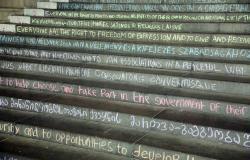
The Making of International Human Rights: The 1960s, Decolonization, and the Reconstruction of Global Values by Steven L. B. Jensen. Cambridge: Cambridge University Press, 2016. pp. 326pp., £70.99 hardcover 9781107112162, £22.99 paperback 9781107531079
Sovereign Emergencies: Latin America and the Making of Global Human Rights Politics by Patrick William Kelly. Cambridge: Cambridge University Press 2018. pp. 334pp., £71.99 hardcover 9781107163249, £21.99 paperback 9781316615119
Such has been the power of post‐colonial critiques, that it is difficult to imagine human rights as anything but a Western project. Scholarship sceptical of the international human rights regime has persistently challenged its claim to universality, pointing in particular to its un‐inclusive past. The adoption of the Universal Declaration of Human Rights in 1948 when the process of decolonization had not yet unfolded, was hardly an auspicious time for a magna carta of mankind. Recent works on the history of human rights, however, paint a more nuanced picture, highlighting the role of actors from the Global South in the evolution of international human rights law and politics. Both Stephen L. B. Jensen's book The Making of International Human Rights: The 1960s, Decolonization, and the Reconstruction of Global Values and Patrick William Kelly's volume Sovereign Emergencies: Latin America and the Making of Global Human Rights Politics convincingly show the significance of Non‐Western contributions in shaping our understanding of human rights.
Image credit: University of Essex via Flickr (CC BY 2.0)